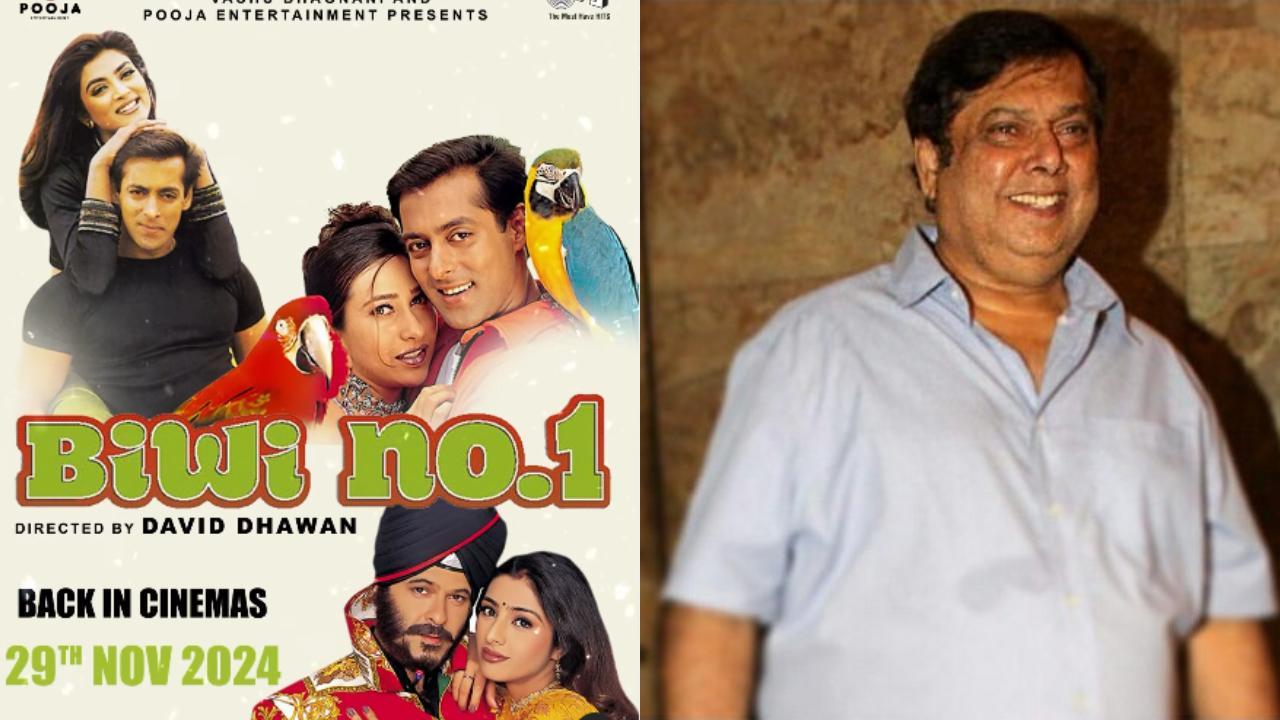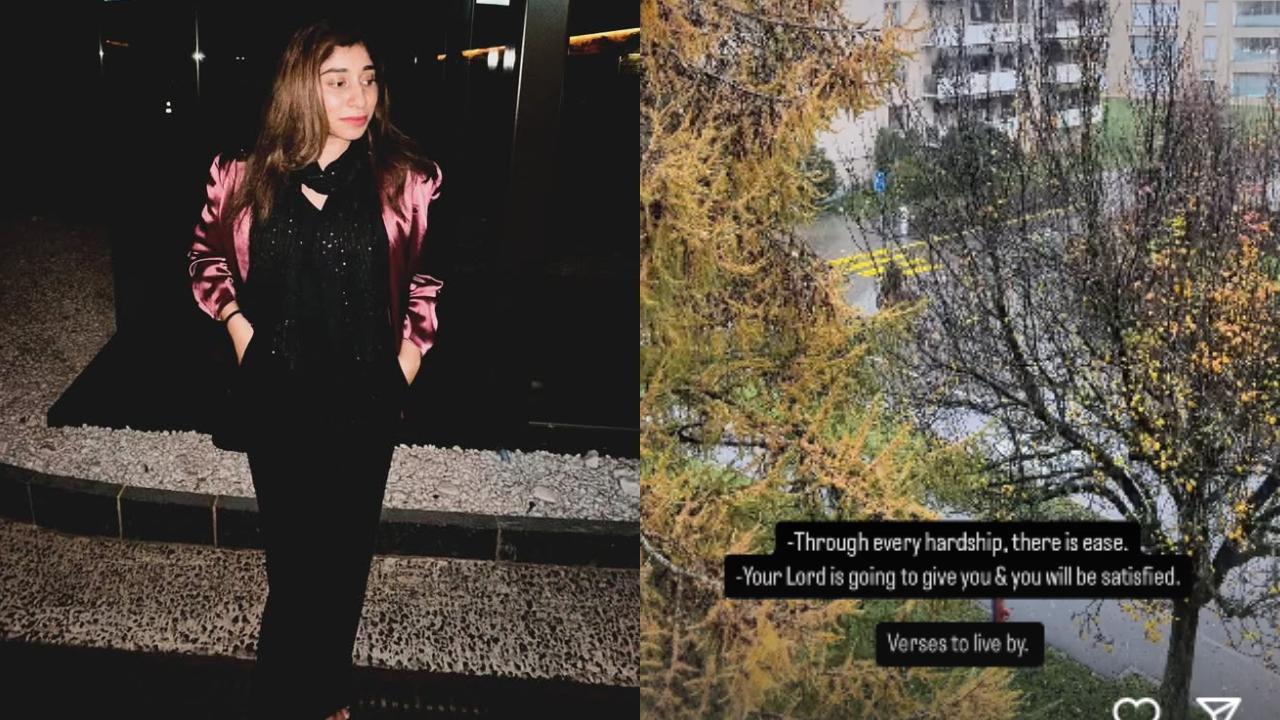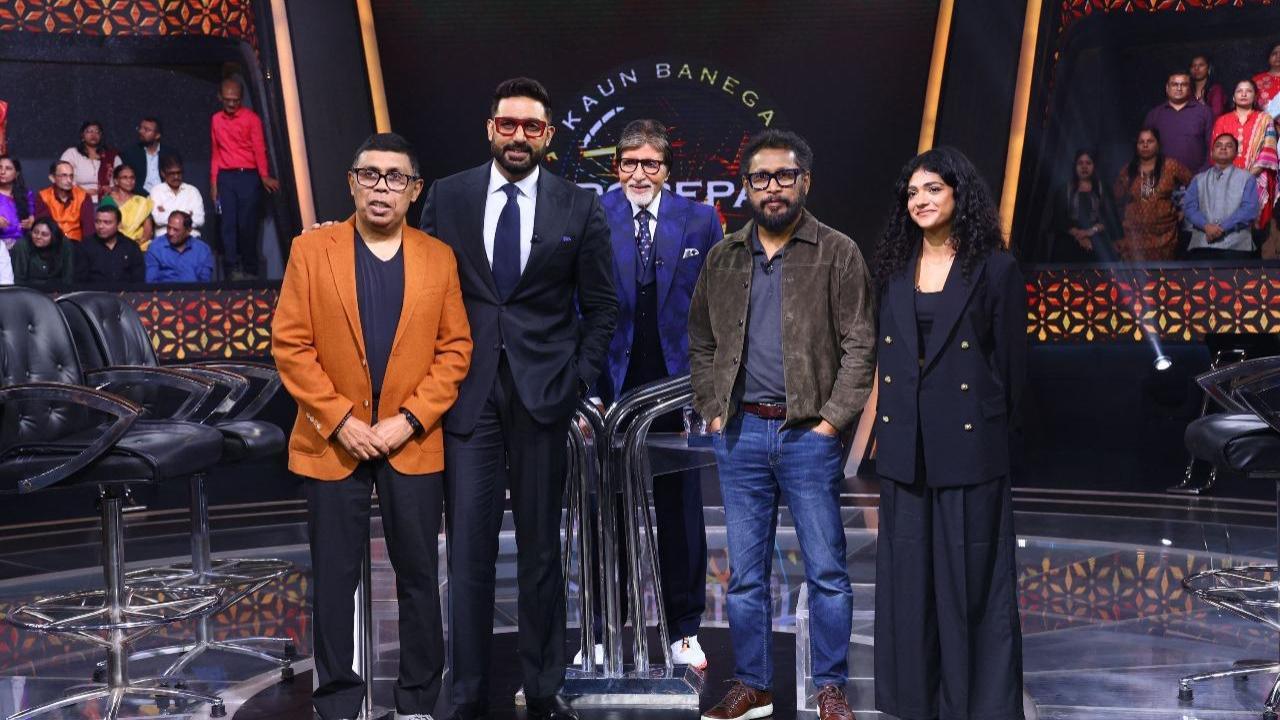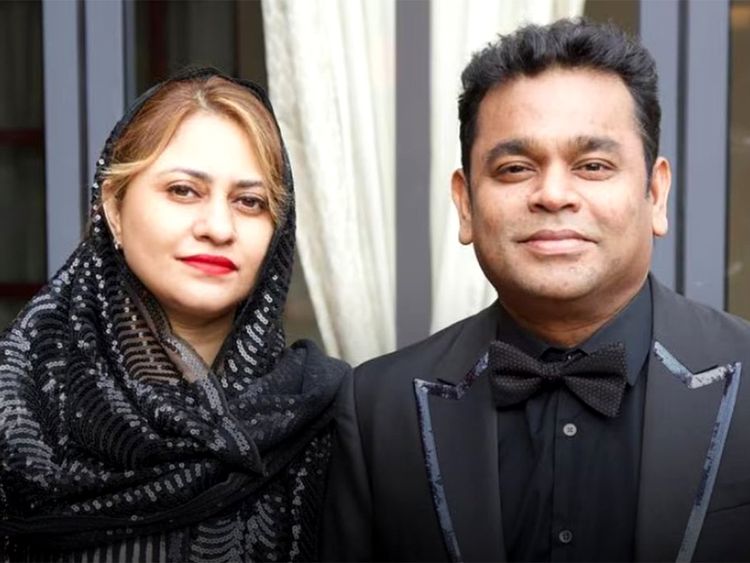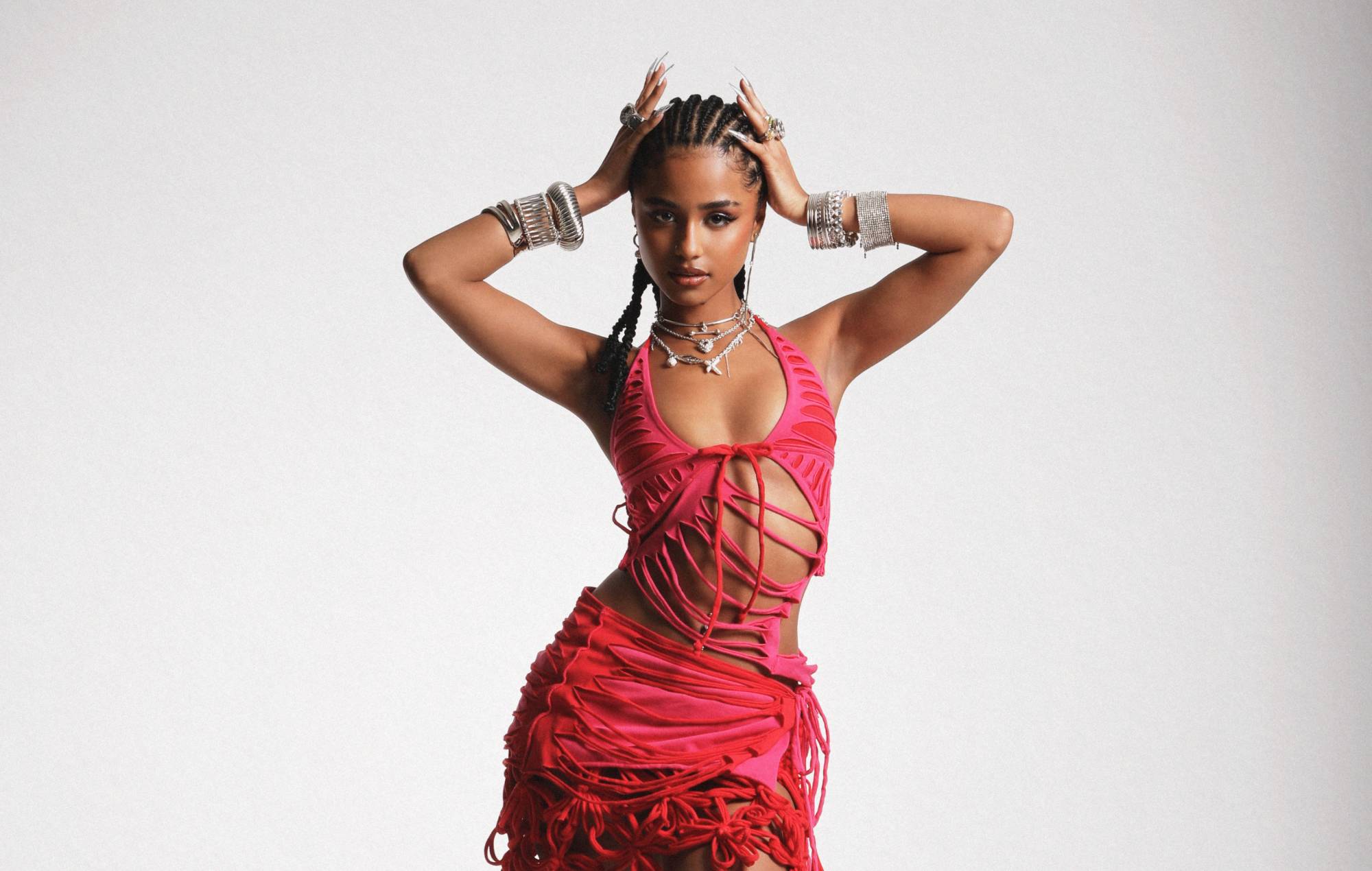
Katie Gavin was unsure about releasing a solo album. Her band Muna – the LA queer pop trio and the self-proclaimed (with tongue only halfway in their cheek) “greatest band in the world” – have just come off their most successful period. Their eponymous third album in 2022, boosted by infectious sun-kissed queer anthem “Silk Chiffon” – 80 million streams and counting – made them the biggest cult band in pop.
Last year they supported both Taylor Swift and Boygenius , the queer folk-rock supergroup led by Phoebe Bridgers. Inevitably, Muna’s songs, full of direct emotional truths about love, lust, longing and heartbreak, have built up a diehard following. So while bandmates Naomi McPherson and Josette Maskin were fine with Gavin branching out with her debut solo record What a Relief – “they’re chilling, they’re really good at trusting the process” – Gavin was nervous about the reaction of Muna’s hardcore fans.
“Once you have a fanbase, they’re always in the back of your mind, what they would want,” she says. “And I know they want another Muna album! So it felt like a big risk to say, ‘I want to take the time that it takes to do this other thing.’ But I really love these songs.
” We’re talking on album release day, Gavin on video call at home in LA dressed in a casual dark hoodie. She was out last night at a DJ set from George Daniel from The 1975 and had a late night: “I’m kind of foggy.” But it was a nice means of distraction from anxiety over the album coming out.
“I think that really is effective. You just gotta move your body when you’re having a lot of feelings.” Read Next Muna: ‘I’m an anti-capitalist but like, pay me’ Feelings are poured into What a Relief, an album that hones in on the specific concerns of being a queer millennial, reflecting on your twenties and being old enough to start figuring things out.
Gavin has pitched the album as “Lilith Fair-core”, in reference to the late-90s American festival that housed many of the confessional singer-songwriters who “changed my life” as a teenager and influenced What a Relief (Tracy Chapman, Alanis Morrissette, Fiona Apple, the festival’s founder Sarah McLachlan). She might have invented a new genre. “I would love that,” she says.
“When Muna started we were marketing ourselves as ‘dark pop’, and no one was really saying that at the time. I do see it around now.” What a Relief had a lengthy origin, made up of songs that, for whatever reason, “didn’t feel right for Muna”.
The oldest song “Casual Drug Use” is seven years old, written from a time Gavin used substances as a crux. She’s been sober for three years now. “But there are plenty of other things that I can use to get out of my feelings.
” Such as? “Oh my God. I mean, boring shit. It’s like, food, TV, looking at furniture online.
The song was an attempt to be compassionate about what I needed to do at the time to kind of cope.” “Aftertaste”, based on true events about the dizzy rush of a new romance, was actually written on the same day as “Silk Chiffon”. What did she have for breakfast that day? “It was really just a normal day! You never know when you’re gonna get blessed.
I was at home. I was investing in myself and my hobbies, and I felt happy and flirty and full of possibility. I think you can hear that in both songs.
” For those of us in long-term relationships, it rekindles a distant feeling. “I think that’s part of why we like pop songs so much. That’s a very fleeting experience, yeah? But hearing a song about it gives us those chemicals a little bit.
” What a Relief really started to take shape in 2020. Gavin had been sharing song ideas with friends; the musician Eric Radloff encouraged her, and began to help her arrange them. The success of Muna’s third album gave Gavin the conviction – “and frankly, more of a platform” – to press ahead with What a Relief.
Muna had actually been dropped by RCA during the pandemic – “a super low point” that turned out to be a blessing in disguise. Muna signed to Phoebe Bridgers’ fledgling Saddest Factory label and had their best ever campaign. “It was meant to be that I got this boost of confidence.
I felt a lot more grounded in my artistry.” Read Next 'As a lesbian, I feel so good here': How Boygenius made a queer women's haven in Halifax What a Relief reflects that confidence – memorably melodic, lyrically piercing but deft, full of honest, multifaceted reflections on love, relationships and family. The beautiful opening track “I Want it All” is about learning to express the complicated, contradictory needs and desires in relationships; both “The Baton” and “Inconsolable” reflect on generational trauma and the mother/daughter relationship.
A duet with Mitski, “As Good as it Gets”, paints a pretty grim picture of domesticity. “You’re saying that because you’re in a long-term relationship!” Come on! The lyric “I want you to disappoint me on and on until we’re old/ I’m inside folding laundry/ You’re outside fixing the hose” seems more like a warning than an ambition? “The truth is I wrote that song to try to comfort myself and a partner when we were in a hard part of our relationship. That relationship ended pretty shortly after I wrote that song.
Not because of the song! But a bunch of my friends were like, ‘I can’t believe that you thought that was a love song’. I try not to have too high expectations, but maybe the pendulum swung a bit too far.” “Sweet Abby Girl” is a love song of a different kind: an affecting ode to Gavin’s dead dog, written ambiguously as if about a lover.
“Initially there was a line about wiping drool off of her lips. Phoebe in the studio said, ‘That’s gonna be weird if people think it’s about a partner’.” But she wanted to write about the particular raw grief of losing a pet.
“Your relationship with your dog is like one of the most intimate things you can experience. So I feel like that deserves a spot in the realm of music. There’s so many other kinds of love we experience other than romantic.
” Even the album cover reflects a certain messiness: Gavin sat on her bed with her cat, the bed unmade and the room untidy. “A lot of the objects are tied to different songs. It’s like an I Spy.
” I did wonder if it was a statement on the childless cat lady discourse? “No, that’s just coincidence. But that’s my vibe, for sure. I have two cats now!” On the upcoming US election, Gavin says, “I’m gonna be voting for Kamala Harris, but I’m not gonna endorse somebody who is funding a genocide.
” Gavin is among those in the US who oppose the Vice-President’s support for Israel’s bombardment of Gaza via arms provision and military aid. This year, the International Court of Justice stopped short of finding that Israel was engaged in a campaign amounting to, or including acts of, genocide. However, in its interim ruling, it found there was a real and imminent risk of acts of genocide occurring.
The full case brought to the ICJ by South Africa against Israel could take years to litigate. Gavin’s political comments are part of a wider conversation on Chappell Roan, and the backlash she’s faced for cancelling shows, and for, as Gavin alludes to, not wholeheartedly endorsing the Vice-President. “I’ve not given that [the backlash] any thought, because the real fans of hers.
.. it’s almost like the girls that get it, get it.
I don’t know what that [the backlash] is. It could be partially homophobia. It could be sexism.
I think also people love to turn on people. That’s a tale as old as time.” Still, Gavin says, “I’m really excited about what’s happening right now” in terms of queer representation in pop: Roan, Billie Eilish, Renee Rapp.
She talks of “watershed moments”, what she calls “little things in culture and media” that have allowed queerness to flourish in the mainstream, like the success of TV show Orange is the New Black , which started just as Muna formed and began working on songs. “That was probably the first show since The L Word that had multiple lesbian story lines. It was part of this nefarious thing of corporations realising that they can make money off of queer stories.
Even that alone was a part of us deciding we can be out as a band, and it’s not going to affect our career negatively.” She mentions marriage equality in America and the “big cultural shift in opinion. To be gay is just not thought of in the same way at all as it was when I was in high school, which is kind of disorienting”.
But she says representation is key. “There has also been this positive reinforcement – people are seeing queer artists. In my opinion, lesbians have always made the best music.
And even if culture moves on, lesbians will continue to make the best music.” Which makes me wonder: if Muna are the greatest band in the world, what is Katie Gavin, the solo artist? “Oh, I’m just a girl singing songs,” she says, laughing. That doesn’t quite have the same ring to it.
“You can only make a statement like that when you’re doing it with your friends. About yourself? That’s crazy!” What a Relief is out now.








